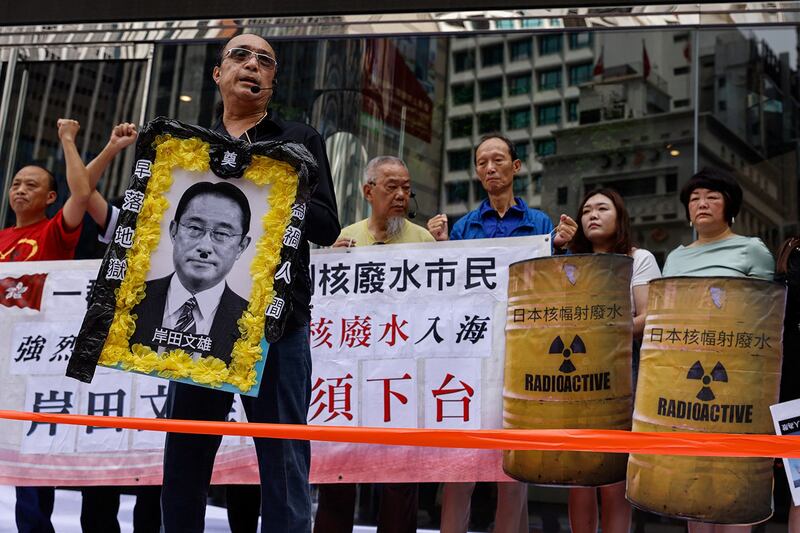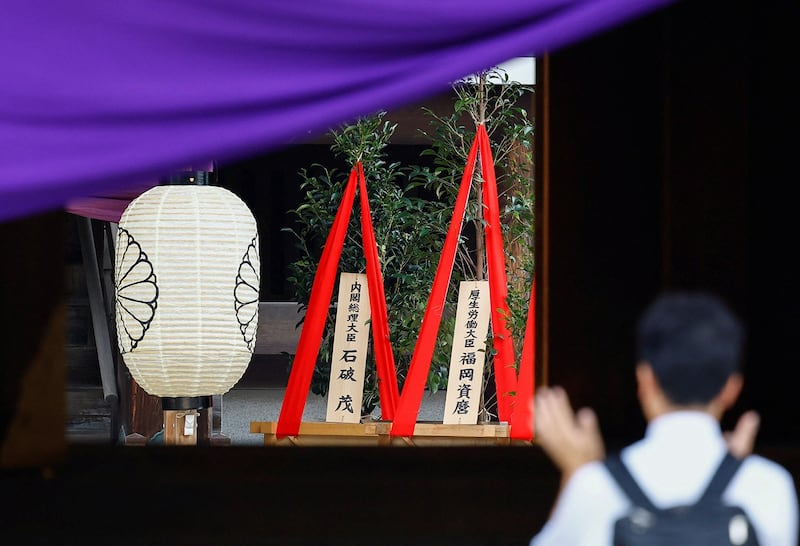China’s army of “little pinks” – nationalistic supporters of the ruling Chinese Communist Party – are calling for a boycott of milk powder giant Feihe following reports that it cooperated with a Japanese company. Yet the campaign may be a bridge too far for Beijing.
The "patriotic" campaign is the latest wave of anti-Japanese sentiment to sweep the country, which intensified after the Japanese authorities released treated wastewater from the crippled Fukushima nuclear plant into the surrounding ocean in 2023, sparking fears of tainted seafood and environmental damage.
There are also growing concerns about anti-Japanese hate in China following the killing of a 10-year-old Japanese boy in the southern city of Shenzhen last month, with the country's foreign ministry forced to deny that the government teaches its citizens to hate Japan.
“There are so many countries with advanced dairy products and technology – why choose Japan?” one social media user commented from Guangdong, while a comment from Jiangsu said “Consumers are patriotic, and we’re not stupid.”
“Nothing good will come from cooperating with Japan,” wrote someone from Gansu, in a screenshot posted to X by @VOCPEnglish. Another comment appeared to agree: “Best not to have any dealings with them. They have evil intentions and we must be on guard,” it said.

The comments came after Feihe reportedly signed a letter of intent on Oct. 3 to develop a lactoferrin-based infant formula product with Japan’s Kyowa Hakko Biochemical Co. Ltd. via a new research & development facility, prompting a wave of public outrage on social media that propelled Feihe to the top of trending topics last week.
Feihe issued a statement on Oct. 18 which didn’t deny the reported collaboration, but did deny claims on social media that the company would import raw materials for its products from Japan.
“This statement is untrue and has seriously affected our brand’s reputation,” the statement said, adding: “Feihe, as a representative of Chinese national enterprises, shares the same patriotic sentiments as consumers.”
But it warned of possible legal action if social media comments continued to damage its brand.
Limits to nationalism
Anti-Japanese feeling has long been a key weapon in the armory of China's nationalistic "little pinks," a hardy staple of Chinese television and cinema and a handy form of clickbait for anyone seeking to boost social media traffic, although Chinese tourists continue to flock to Japan.
The Shenzhen killing wasn't the first attack this year – a Chinese woman died and a Japanese mother and child were injured in a knife attack in the eastern city of Suzhou in June.
China last week called on Japan to “face and reflect on its history of aggression ... and make a clean break with militarism” after Japanese Prime Minister Shigeru Ishiba reportedly sent an offering to the war-linked Yasukuni Shrine. Tokyo should seek to “earn the trust of its Asian neighbors and the international community with concrete actions,” foreign ministry spokesperson Mao Ning said in a statement on Oct. 17.
China objects whenever Japanese leaders visit the shrine, saying it honors “14 convicted Class-A war criminals with grave responsibilities for war crimes” committed during World War II in China.

Ishiba, who took office on Oct. 1, made a ritual “masakaki” tree offering under his name as prime minister, Japan’s Jiji Press reported.
Nonetheless, Chinese state media have lined up to support Feihe, which is listed as a key research and development company in China’s 14th Five Year Plan, with an op-ed by state news agency Xinhua claiming the company had been “unreasonably slandered.”
Sun Kuo-hsiang, director of the Asia-Pacific Institute at Taiwan’s Nanhua University, said that China has long used nationalism as a tool to build “unity” in the face of a foreign opponent, but that there are limits on how far Beijing will let it go.
“I think the Chinese Communist Party really does have a limit when it comes to nationalism,” Sun told RFA Cantonese in a recent interview on anti-Japanese sentiment on social media. “When it serves the Chinese government’s foreign or domestic policy goals, they will encourage it.”
“But if it starts to threaten China’s international image or public order at home, they’ll clamp down on it.”
‘Manipulated and brainwashed’
Meanwhile, parents whose children died or were made sick by infant formula tainted with melamine in a scandal that broke in 2008 called for caution.
“Little pinks these days are highly focused on biased food safety information, on hatred of Japan, patriotism and nationalism,” Wang Chenxu, whose sister was made sick by tainted infant formula, told RFA Mandarin in a recent interview.
“They are totally being manipulated and brainwash’ed by government propaganda,” he said. “They believe whatever the government tells them.”
Patriotism is making people blind to potential food safety issues in homegrown products, Wang warned.
Wang’s father Guo Caihong said the melamine scandal had led to the downfall of Sanlu, one of the biggest companies in China at the time, suggesting that tainted milk was rife throughout the industry.
Three executives of the Shanghai Panda Dairy Company were jailed for terms of three to five years in March 2010 for their roles in the production and sale of melamine-tainted dairy products last year.
And in November 2009, authorities in the northern city of Shijiazhuang executed two people for their role in the scandal, which killed at least six children and sickened hundreds of thousands.
Translated by Luisetta Mudie.
